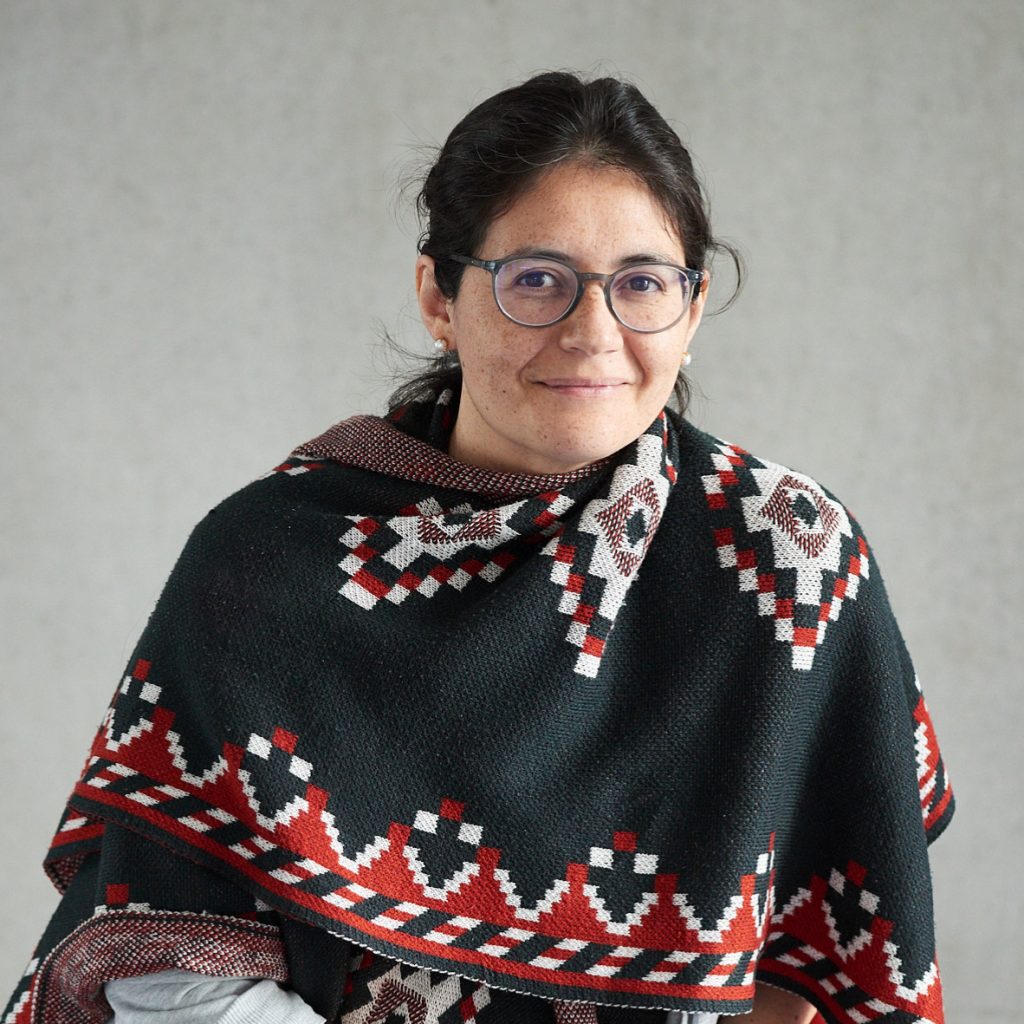
Macarena Marín Arancibia
Principal investigator
I was born in a small town surrounded by mountains, like most towns in Chile. Later, I moved to Santiago to study Engineering in Molecular Biotechnology at the University of Chile, where I fell in love with microbiology. After graduating in 2006, I moved to Germany to join Dietmar H. Pieper’s group for my doctoral studies at the TU Braunschweig and Helmholtz Centre for Infection Research. There, I investigated the versatile metabolic pathways that Pseudomonas use to degrade complex aromatic molecules. Upon graduating in 2009, I realised my passion for microbes remained strong, but I wanted to learn how they interact with plants, despite knowing little about plants at the time. This led me to southern Germany, where I joined Thomas Ott’s lab at the LMU Munich. I studied how unfolded regions of plant-specific remorin proteins mediate protein interactions and began exploring how these proteins facilitate the interaction between legume plants and rhizobia bacteria. In 2015, I started my own lab at the LMU Munich, where I combined my newfound love for plants and my longstanding passion for microbes to investigate the legume-rhizobia root nodule symbiosis. In 2024, I was appointed Associate Professor at the Department of Plant Molecular Biology at the University of Lausanne in Switzerland. Our group is funded by the University of Lausanne, the German Research Foundation, and the Swiss National Science Foundation.
(C) C. Bleese
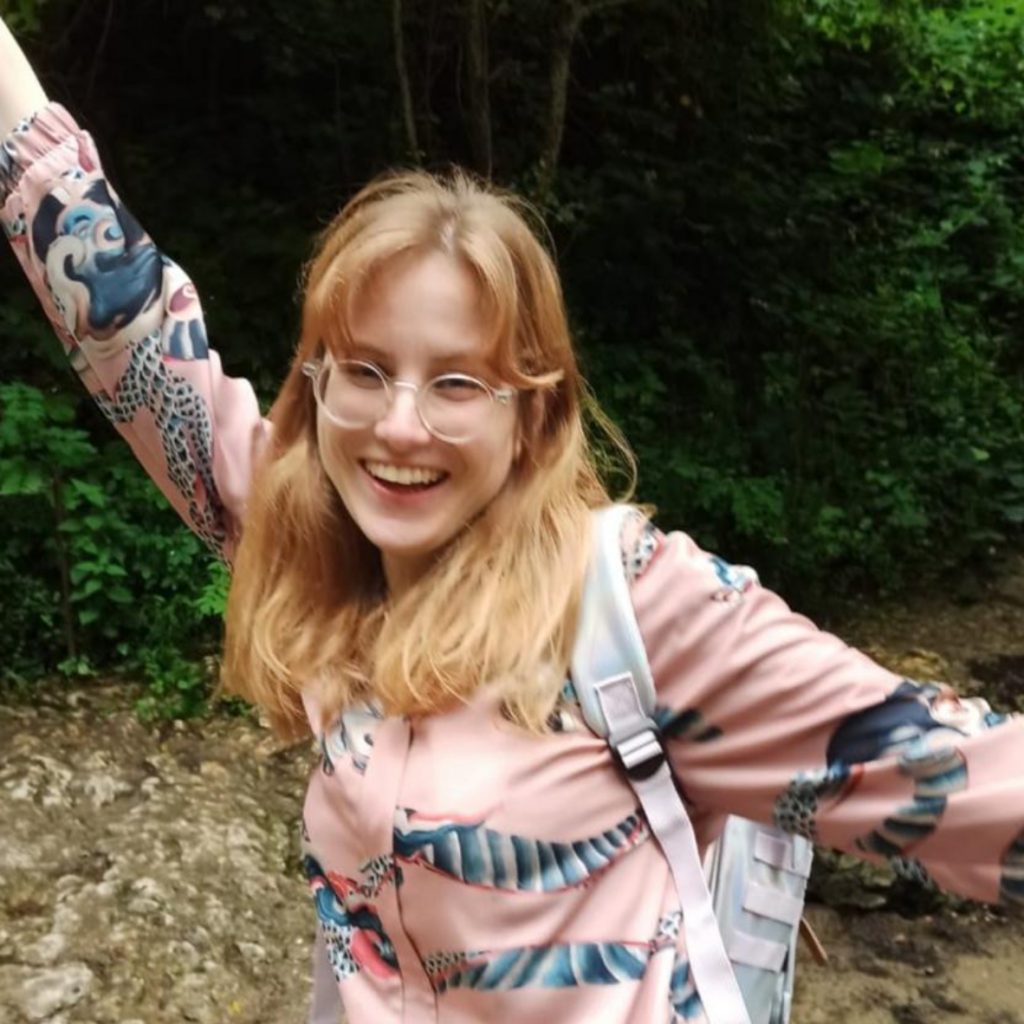
Ambre Guillory
Postdoctoral researcher
After having finished my studies in Plant Sciences at Paris Saclay University, I joined the group of Dr. Catherine Rameau at the Jean-Pierre Bourgin Institute (IJPB) in Versailles. There, I awfully tortured Physcomitrium patens plants to uncover the secrets of this moss response pathways to strigolactones and to the elusive KL putative phytohormone. I then left for the pink city of Toulouse to study root nodule symbiosis (my first scientific love), as a postdoc fellow in the team of Dr. Fernanda de Carvalho-Niebel at LIPMe. There I mainly explored how both Medicago truncatula and its symbiont Sinorhizobium meliloti reprogram to enable the successful early infection of root hairs. This interest then led me to join the Marín group, from February 2024 on. My main objective during this second postdoc experience will be to investigate specific cell wall modifications enabling the accommodation of symbiotic bacteria inside nodules cells.
Outside of the lab, I love baking, gardening, playing video games and getting lost while walking around various cities.
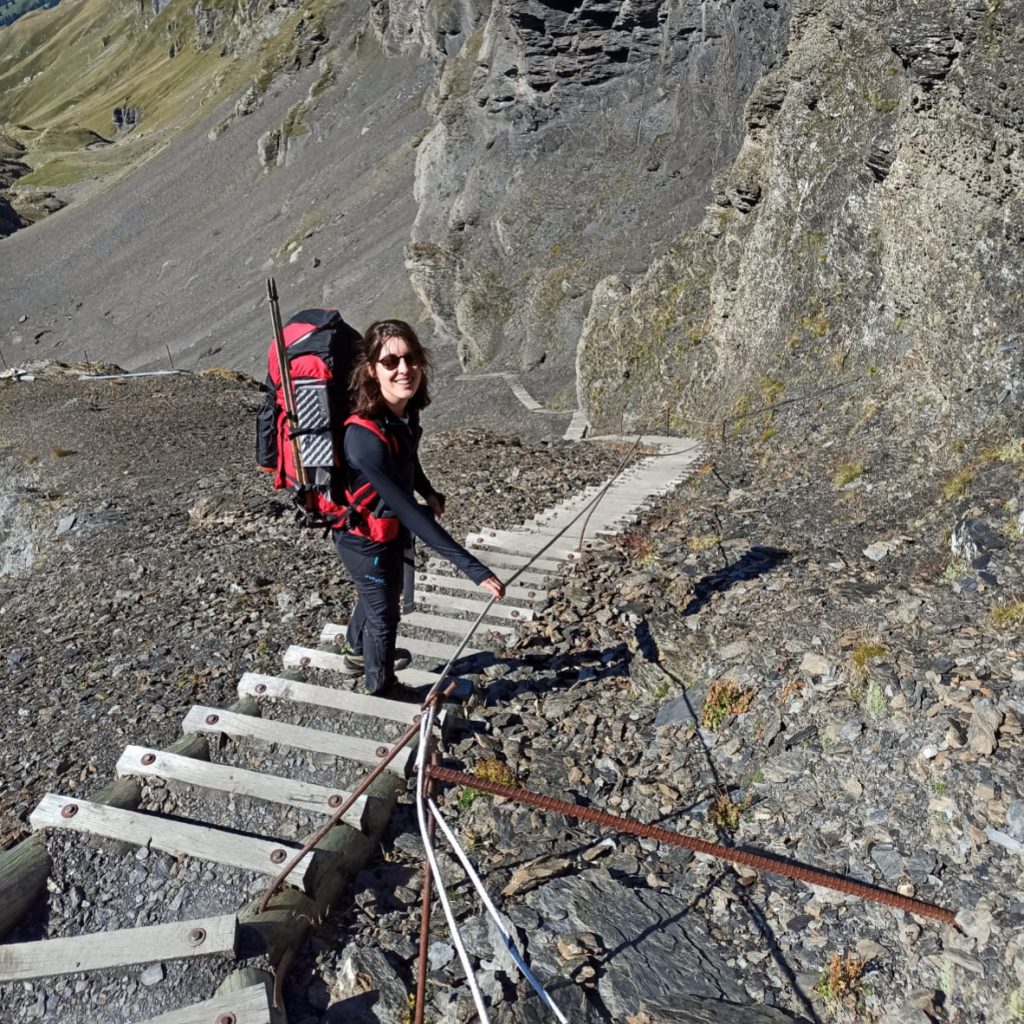
Léonie Mottet
PhD Student
I completed my bachelor’s degree at the University of Lausanne in 2021. During my bachelor’s studies, I became fascinated by plants and decided to pursue a master’s program in integrative biology in Lausanne. Beyond plants, I also became increasingly interested in biotic relationships. That is why I conducted my first step project in Ian Sander’s lab, where I investigated the impact of soil disturbance on the common mycorrhizal network formed between maize and cassava plants. I then began my master’s project in Philippe’s Reymond lab, attempting to understand the molecular mechanism by which Arabidopsis thaliana responds to insect egg deposition. After an additional year of reflection while working as a research assistant in Philippe Reymond’s lab, I made the decision to continue my academic education. In April 2024, I was excited to join Macarena Marín’s team as a PhD student to work on the microbiota of root nodules in Lotus japonicus.
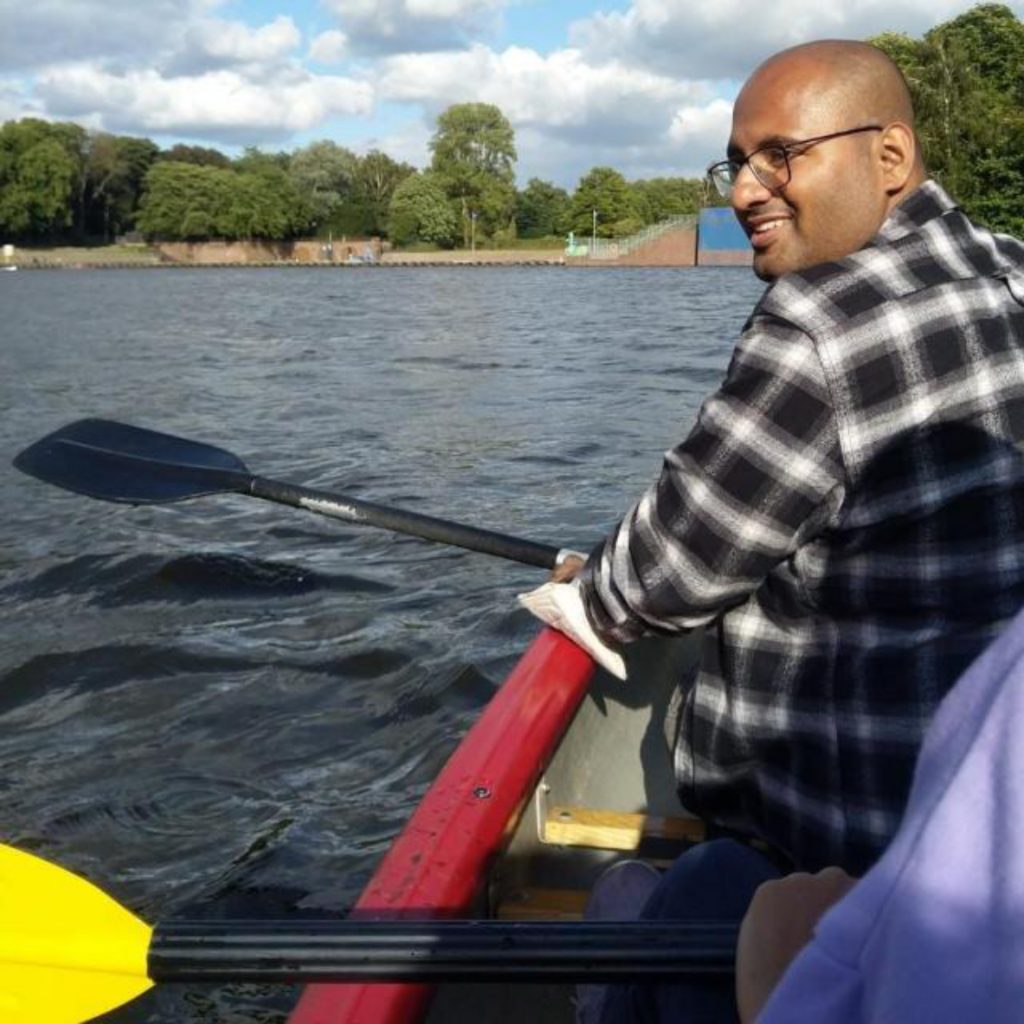
Shrihari Negi
PhD Student
I grew up in Hyderabad, India and obtained a Bachelor of Science (Research) in Biotechnology with a minor in chemistry from Shiv Nadar University, Delhi NCR in 2020. Here, I developed a fascination with synthetic biology, and helped establish an iGEM team in 2019. For my bachelor thesis, I worked on mitochondrial chaperone proteins in the yeast model Saccharomyces cerevisiae with Dr. Koyeli Mapa’s group. I then studied at the University of Düsseldorf, Germany to pursue master studies in Biology, with a scholarship from the Cluster for Excellence in Plant Sciences (CEPLAS), graduating in 2023. In my master thesis, I worked at the Max-Planck-Institute for Plant Breeding Research (MPIPZ) in Cologne with Dr. Tonni Grube Andersen’s group, to characterize and develop transgenic plants with modified secondary cell wall depositions in the model plant Arabidopsis thaliana and the oilseed crop Camelina sativa. I joined Macarena Marín’s group at the University of Lausanne in January 2024, where I am working on understanding tissue-specific lipid metabolism in root nodules of legume plants. I aim to utilize genetic re-wiring, microscopy, transcriptomic and physiological analyses to understand the function and regulation of diffusion barriers in root nodules.
Besides academic endeavors, I enjoy a good game of chess, cooking and playing music on instruments like the tabla or guitar.
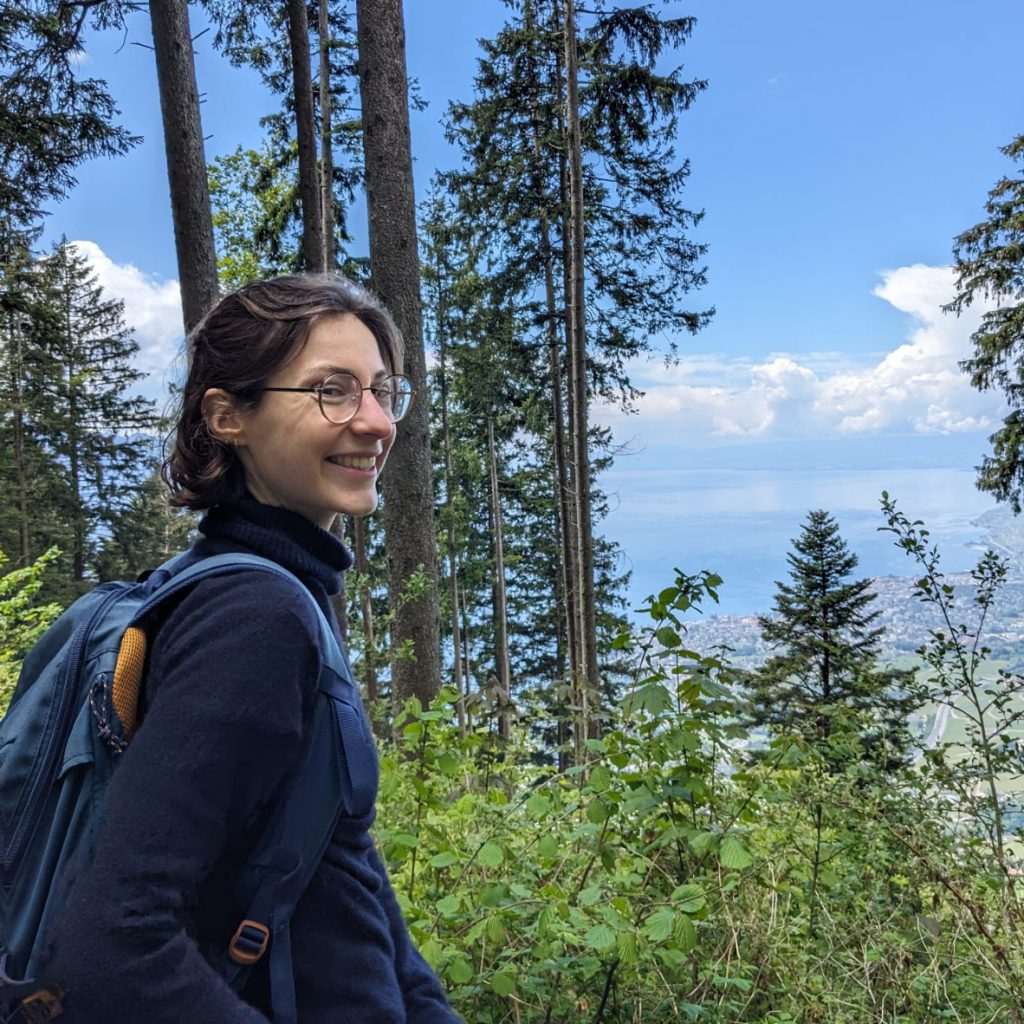
Cecile Perrollaz
Technician
After earning a two-year technological degree and a master’s degree in biology, I developed a deep interest in plants and their quirky ways of adapting to their environment. This curiosity led me to the Umeå Plant Science Centre in Sweden, where I worked in Professor Stephanie Robert’s group to validate pavement cell-related genes in Arabidopsis thaliana using confocal microscopy. In 2022, my adventures took me to Cambodia, where I joined the BRIO team from the French National Research Institute for Sustainable Development. Our mission was to study the links between the microbiome and rice (Oryza sativa) resistance to parasitism, particularly by the mischievous nematode Meloidogyne graminicola. After a year in the rice fields and labs (and surviving a few A/C breakdowns), I found myself missing cheese—especially a good raclette in winter! In June 2024, I joined Professor Macarena Marín’s lab as a lab technician. Intrigued by plant-microorganism interactions, I dived into the amazing world of nitrogen-fixing bacteria and legumes, discovering it to be far more complex and fascinating than I expected.
As a hiking lover, skiing enthusiast, and climbing aficionado, Switzerland is the perfect place for me to blossom—like a Lotus japonicus flower with a little help from Mesorhizobium loti.
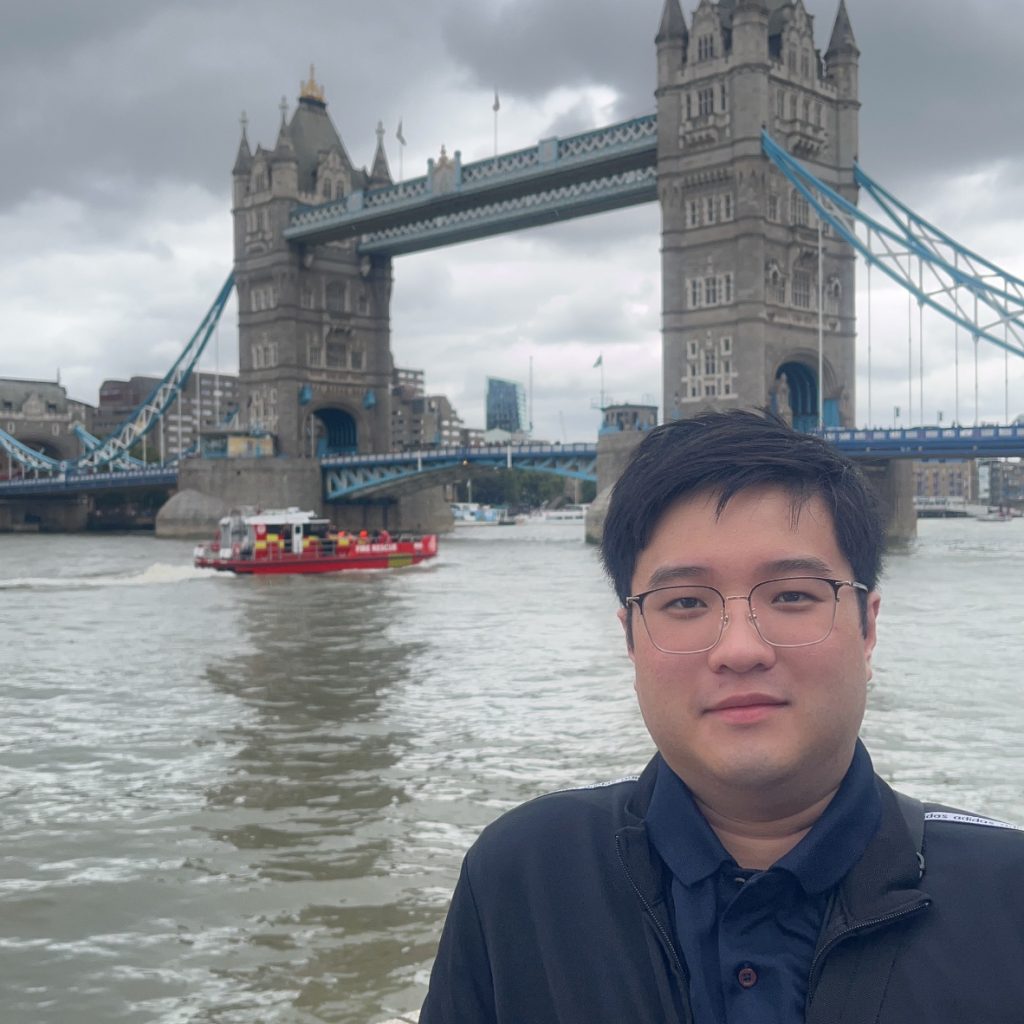
Yu-Hsiang Yu
PhD Student
I was born in Taiwan and obtained my bachelor’s degree in Plant Pathology from National Chung Hsing University. My interest in plant fungal diseases led me to join Prof. Ying-Lien Chen’s group in the department of Plant Pathology and Microbiology at National Taiwan University for my master’s degree, where I identified roselle wilt disease caused by the Fusarium solani species complex. I integrated microbiome technology to study pathogenic and beneficial microbes in roselle’s rhizosphere, sparking my interest in microbiome studies. After completing my master’s degree, I worked with Prof. Hiran Ariyawansa in the same department, identifying anthracnose disease in Welsh onion caused by the Colletotrichum spaethianum and Colletotrichum dematium species complexes. In September 2022, I began my PhD in the group of Prof. Macarena Marín at LMU Munich and later moved to Lausanne, focusing on the role of Pseudomonas in root nodule symbiosis of Lotus species based on a microbiome study of Lotus root nodules.
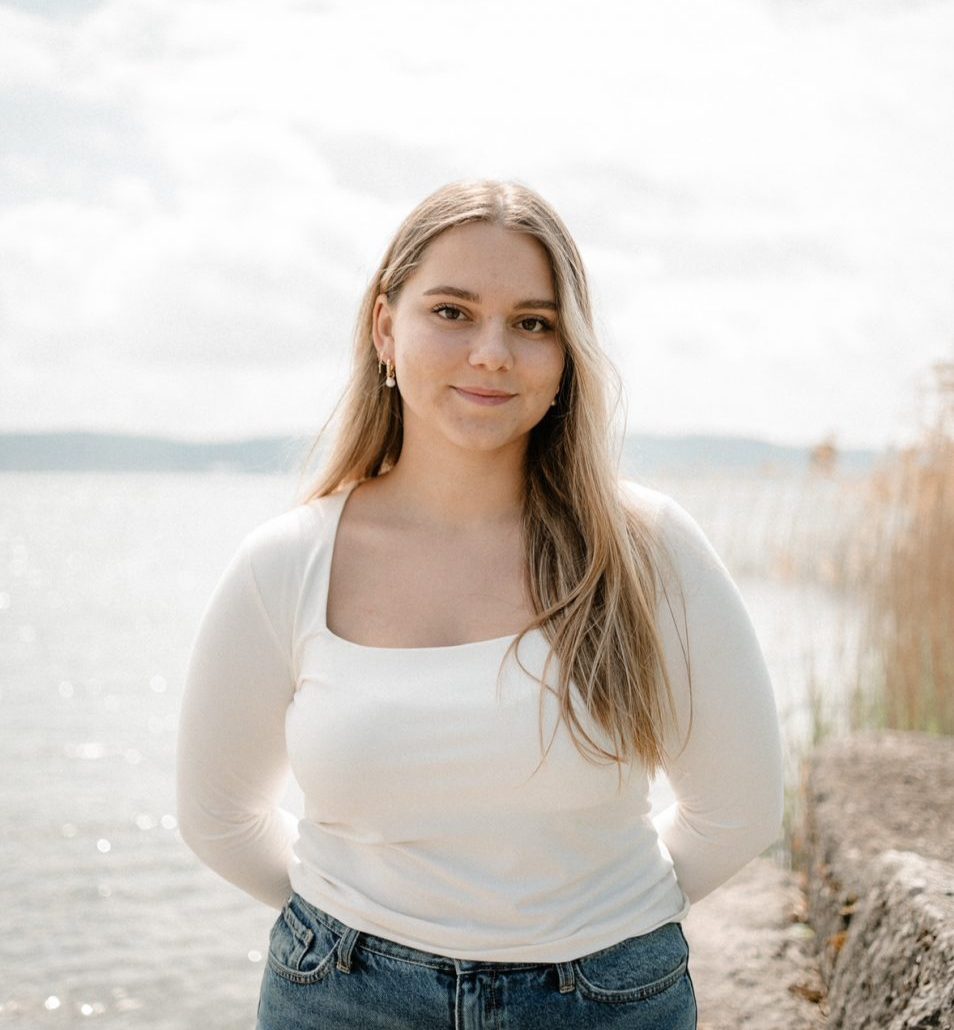
Alice Bertin
Student assistant
After finishing my high school studies in biology and chemistry, I decided to pursue biology at university as it was the only field I truly knew.
I’m so happy to be part of the world of biology, as there’s always something new to learn about our environment, especially plants which do so much more than we realize!

Oindrila Bhattacharjee
Postdoctoral researcher

After earning my master’s degree from the University of Calcutta in Kolkata, India, I became a part of Dr. Senjuti Sinharoy’s research group at the National Institute of Plant Genome Research (NIPGR) in New Delhi, India, where I was first introduced to the fascinating field of root nodule symbiosis. This experience ignited my deep interest for exploring the intricate symbiotic relationships between plants and microbiota, leading me to pursue a PhD under the joint supervision of Dr. Senjuti Sinharoy from NIPGR and Dr. Kaustav Bandyopadhyay from Amity University. During my doctoral research, I focused on the symbiotic interaction between peanut (Arachis hypogaea) and Bradyrhizobium, where I identified both common and distinct molecular strategies, compared to the model legumes, that govern the intercellular crack-mediated entry of Bradyrhizobia into peanut roots. I identified the novel recruitment of a cell wall-modifying enzyme during the intercellular mode of rhizobial infection during nodulation. This finding triggered my interest to discover the diverse infection mechanisms.
To further pursue with this research interests, I joined Dr. Marin’s lab as a postdoctoral researcher in February 2025. My research will be focussed on characterizing the cell wall modifications that occur during rhizobial infection. Outside of the lab, I find joy in Indian classical dancing, cooking, gardening, and exploring new destinations.
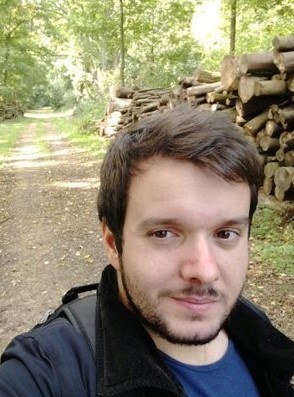
Pedro Carvalho
Postdoctoral researcher

I was born in Coimbra, Portugal, where I earned a bachelor’s degree in Biology and decided to continue in science by pursuing a master’s in Biomedical Research. However, after my first experience with animal experiments, I realized that biomedical science wasn’t the right path for me. I transitioned to a Plant Biotechnology master’s program, where I worked on ectomycorrhizal fungi in maritime pine forests.
After completing my master’s, I moved to Oeiras to pursue a PhD in the group of Dr. Nelson Saibo at ITQB. During my PhD, I focused on understanding the transcriptional regulation of a C4 promoter in rice, a C3 plant. In collaboration with Professor Jane Langdale’s lab at the University of Oxford, I identified and characterized three rice transcription factors that regulate the spatial and temporal activity of the C4 promoter.
After obtaining my PhD in 2023, I continued in the Saibo lab as part of the EU-funded project Photoboost, which aimed to enhance the photosynthetic performance of rice by introducing strategies to improve various aspects of photosynthesis.
I joined the Marín lab in April 2025, where I will combine my two scientific passions—symbiotic relationships and transcriptional regulation. My current work focuses on uncovering the regulatory mechanisms involved in diffusion barrier formation and bacterial accommodation in root nodules.
Outside the lab, I enjoy spending time with my family, playing video games, reading fantasy books, cooking, and discovering new places.
